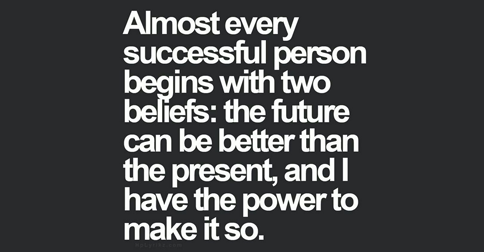HJ: You are powerful. You are whole and you are entirely capable of anything you set your heart and mind to. This article will show you how to tune into that power and bring it front and center into your life.
– Truth
The Powerful Self
Would you rather feel powerful or be powerful?
By Steven Stosny, Ph.D. | Psychology Today
—
To function at their highest level with maximum well being over time, people need to feel both empowered and valuable. Most of my posts over the past three years have been about value, specifically what happens when we fail to create it or when we violate the values we create. This post is about personal power.
Fantasies aside, power is not simply the ability to do something or make someone else do something. You have the power to drive your car into the side of a building; you might even be able to coerce your spouse into doing it. But would you be powerful if you did?
Personal power is an internal state that allows you to act in your long-term best interest in all circumstances. Internal power is stable and enduring because, unlike feelings of power, it does not depend on temporary ego states driven by adrenalin and reinforced by a certain amount of self-deception. In other words, being powerful differs in important ways from feeling powerful.
To feel powerful, people often try to control or manipulate others, which requires some degree of adrenalin and self-deception. To be powerful is to strengthen the sense of self, which increases the likelihood of consistently acting in your long-term best interest.
The “Laws” of Personal Power
I have learned in a quarter century of clinical practice that clients come totherapy because they feel powerless in some area of their lives. When treatment is successful, they learn to observe what I call the “laws” of personal power.
Power Law # 1: Ownership
We are powerless over what we do not own. Powerless people perceive their emotions as products of their environment. Others “push their buttons” and “make them” react in detrimental ways. Their mothers “lay guilt-trips” on them and their spouses don’t get the “real” them. In severe cases they become “reactaholics,” unable to know what they think and what they should do, until they react to someone else’s attitudes or behavior. The disastrous misperception of their unpleasant emotions as punishments inflicted by an uncaring world makes them feel powerless most of the time. It seems like all they can do to prevent others from “making” them feel bad is try to control, manipulate, or seduce them.
Empowered people believe that their environment triggers emotions but does not own or control them. They use their triggered emotions to act in their long term best interest (e. g., if feeling guilt, they act in accordance with their deeper values), or they regulate the triggered emotions, e.g., replace the self-focus of guilt with the other-focus of compassion, which leads them to make up for whatever offense they committed.
Power Law #2: Focus.
Powerless people focus on what they cannot do. Stuck in traffic, they think exclusively about things they can’t control – the way the highway should have been designed or how the traffic lights should be synchronized and, of course, how everyone else drives.
Empowered people focus on how to improve their situation or their experience of it. Stuck in traffic, they make a phone call, reorganize their time to make up for being late, or relax and listen to music or a book on tape.
Power Law #3: Self-awareness.
Powerless people act on feelings and impulses with no understanding of what they mean about them or the effect on their desires, goals, and values. They are unaware of their current physical and mental resources, which strongly influence their interpretation of experience.
Empowered people are usually aware of their physiological, emotional, and intellectual resources and responses when they need to be. They know, for instance, that when angry, they’re less likely to act in their best interest, so they choose to regulate the anger before acting. They understand that their anger is most likely a response to feeling hurt or devalued and that they need to do something that will heal and improve; they need to do something that will make them feel more valuable, not more powerful.
Power Law #4: Self-regulation.
Empowered people have the ability to regulate mental states or “modes of self,” which are organizations or styles of thinking, feeling, and behaving. Modes of self make the world at a given moment mean something specific and present a certain selection of thoughts, emotions, and behavior. For instance, we’ll experience a situation one way in a “competent” mode of self and quite another in a “helpless” mode.
The major modalities of self fall into two broad categories: power modes – competent, creative, growth-oriented, healing, nurturing, cooperative, and compassionate – and weak modes – helpless, dependent, depressive, destructive. However stressful a situation, it will be negotiated more efficiently and more pleasantly in a power mode. Encountering any situation in a weak mode guarantees confusion or pain.
Those who master the skill of regulating weak modes with power modes are less resentful and get angry less frequently, simply because those typical reactions to feelings of powerlessness are far less necessary. They are able to take the perspectives of loved ones when they disagree and to be less reactive and more patient with everyone they encounter. They are able to learn from their mistakes and take joy in a sunset or a sleepingchild’s face. They still feel helpless, dependent, depressed, or destructive now and then but are able to regulate those transient states to become more competent, growth-oriented, creative, nurturing, cooperative, and compassionate when necessary. In short, they have a stable and powerful self.
Join us for a Webinar on The Powerful Self.













